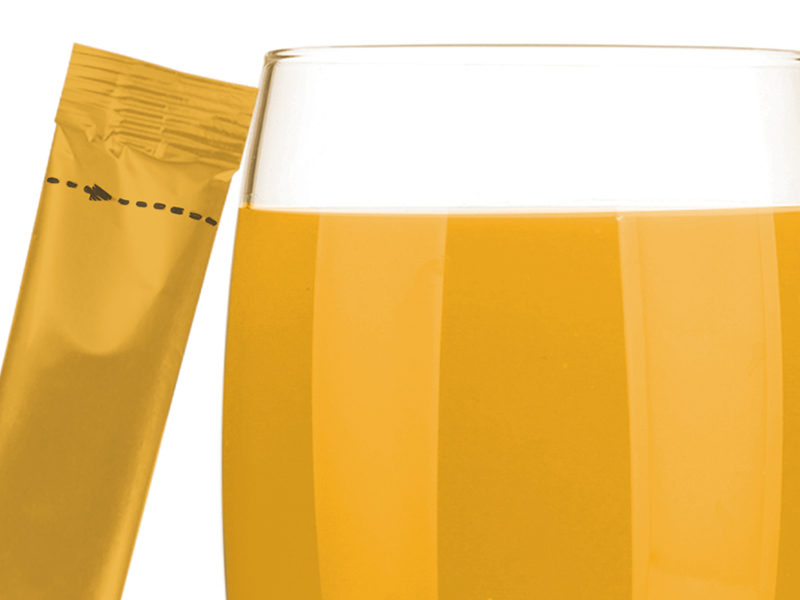
Food supplements to support women’s health and comfort
According to a 2023 IFOP survey entitled “Women’s intimate health”, almost 1 in 2 women aged between 18 and 55 (48%) suffer from at least one intimate problem on a daily basis [1].
To meet this need, the promises made for women’s well-being have expanded and adapted to support them at every stage of their lives.
Today, the women’s health sector is made up of over twenty sub-segments, with a wide range of products addressing different intimate concerns.
In the food supplements segment, for example, the range addresses the different manifestations of the menopause, urinary comfort, painful periods, premenstrual syndrome, heavy legs, etc. In addition, food supplement brands have widened their product ranges to provide better support for women who want to conceive a child, before, during and after pregnancy.
The nutraceuticals market
The food supplements industry takes action to improve women’s health
Nutraceuticals offer the possibility of improving women’s well-being, and the potential is great. Some vitamins, such as B vitamins, and some minerals, such as iron, are already well established. They are recognised in this sector and supported by European claims. Plants are increasingly explored and suppliers of plant extracts carry out more clinical studies to provide specific solutions for women’s comfort. This effort is supported by women themselves, who are actively involved in their own health.
Food supplements aimed at women enjoy very dynamic growth
The figures show significant developments.
The global market for women’s food supplements exceeded $54.5 billion by 2022 [2].
In France, young brands have sprung up around nutritional supplements for women. Consumption of food supplements is often accompanied by medical follow-up and daily advice.
The French para/pharmacy market was estimated to value almost €120 million in 2023, with very dynamic growth of +26.4% [3].
The problems of female discomfort are both recurrent and diverse
The figures below are indicative of the number of women affected over their lifetime.
Premenstrual syndrome (PMS) and menstrual health
In France, 1 in 3 women suffers from painful periods. Premenstrual syndrome affects between 20% and 40% of women of childbearing age, and 60% suffer severe pain at least once a year [4].
Menopause
The menopause is a time of many changes for women, and can be the cause of a number of problems. The main menopause-related symptoms are physical, including hot flushes, night-time awakenings, fatigue and weight gain. Psychological symptoms such as a drop in mood, reduced libido, irritability and stress can also occur.
According to the UN, there will be more than 985 million women aged over 50 in the world in 2020. This number is expected to rise to 1.1 billion by 2050. In France, 500,000 new French women enter the menopause every year. This concerns 14 million French women [2].
Urinary tract infection
Urinary tract infections are also a widespread problem. In France, 1 in 2 women will suffer at least one episode of cystitis in her lifetime.
Iron deficiency
Iron deficiency is the leading cause of anemia worldwide. It affects 33% of non-pregnant women, 40% of pregnant women and 42% of children. In France, 25% of non-menopausal women have an iron deficiency [4].

Heavy legs
Heavy legs syndrome is often not taken seriously, even though it affects a third of the world’s population every day, and 8 out of 10 women.
Endometriosis and polycystic ovaries
10% of women are affected by endometriosis and polycystic ovary syndrome. Diagnosis and treatment are under development.
Stress
Finally, the stress rate is twice as high for women as for men. In France, the proportion is 64% for women and 32% for men.
Although taboos are breaking, there is still a lot to be done to support women in their health and well-being. There are many solutions, and many are still to come. A holistic approach is being developed that combines social and medical support, nutrition and education on these issues.
Healthcare professionals play a key role in managing these problems on a daily basis. In fact, in France, 7 out of 10 women talk easily about their intimate problems to their gynecologist, general practitioner or pharmacist. However, according to the Senate’s “Femme et ruralité” report of 2021, 13 departments have no gynecologist and there are 2.6 specialists per 100,000 women [5].
At Laboratoire PYC, we are delighted to be working on these women’s health issues. We are exploring new solutions to address each topic specifically and effectively. If you are a brand and are looking for a food supplement manufacturer to work with on a project, we would be pleased to help you.
[1] IFOP survey on “Women’s intimate health”, carried out in April 2023 among 1,000 women aged between 18 and 55.
[2] Actif’s Magazine : Les tabous levés sans coquetterie, Hiver 2024
[3] Baromètre 2023 des produits de santé et de prévention de premier recours
[4] Women’s health, Actif’s autumn 2022 – AFEM / INSERM/ IFOP study 2021







